Exercise Science & Personal Training
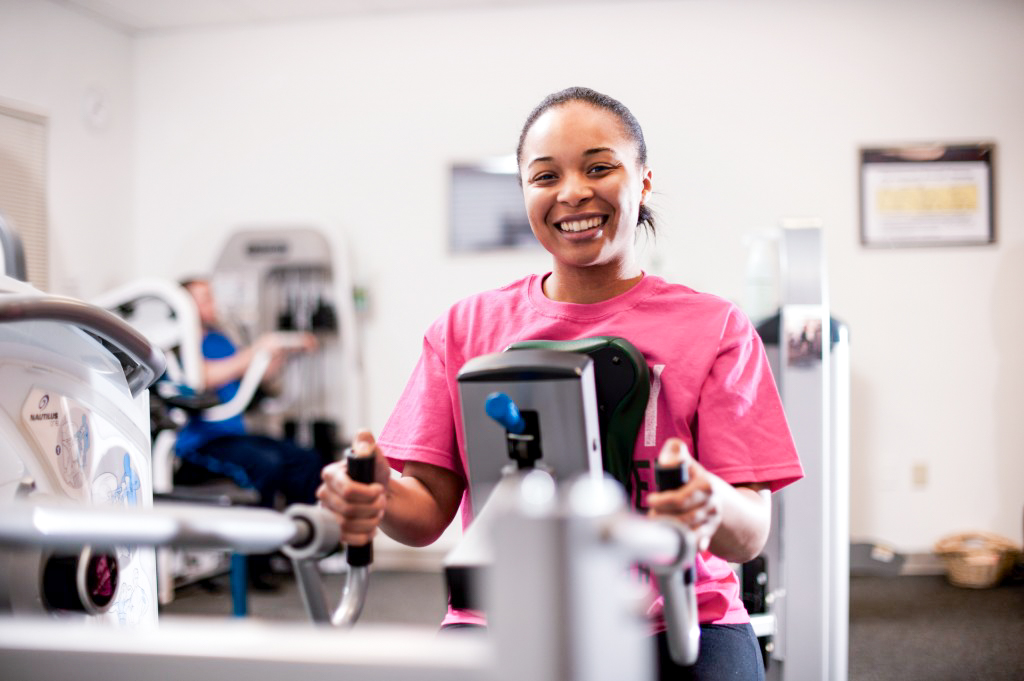
Overview
The Exercise Science & Personal Training program is designed for students who wish to continue their education in the field of exercise and fitness. Whether one chooses to train clients, work for a non- profit health related organization, or participate in health and fitness research, this program will allow students the opportunity to hone their skills as fitness professionals; develop their interpersonal communication and critical thinking skills; and become familiar with basic management principles that will aid them in forging a career in the fitness industry.
Professional licensure and certification requirements vary from state to state. This program of study may lead to professional licensure or certification in states outside of the Commonwealth of Massachusetts. Licensure and certification in one state do not guarantee automatic licensure in another state. Students who are interested in enrolling into this program of study, and reside outside of Massachusetts, should check their state educational requirements for licensure or certification. For more information, please visit our SARA Professional Licensure Disclosure page
Exercise Science & Personal Training Courses
-
Code
Course
Credits
-
- BIO 131
Anatomy & Physiology I w/ Lab
- 4
-
- EXS 101
Health Appraisal & Fitness Assessment
- 3
-
- EXS 102
Muscular and Cardiovascular Fitness
- 3
-
- EXS 115
Injury Prevention, Flexibility and Functional Training
- 3
-
- EXS 116
Strength Training and Endurance Exercise
- 3
-
- EXS 119
Bioenergetics and Biomechanics
- 3
-
- EXS 150
Nutrition for Fitness
- 3
-
- EXS 201
Youth and Senior Fitness
- 3
-
- EXS 202
Exercise Program Design
- 3
-
- EXS 204
Advanced Training Programs
- 3
-
- EXS 206
Fitness Facility Management
- 3
Associate Degree
The Exercise Science & Personal Training program is designed for students who wish to work toward American Council on Exercise (ACE) certification as well as those who anticipate transferring to a Baccalaureate Degree-granting institution. The course of study is interdisciplinary and includes the College general education curriculum; courses specific to exercise, fitness, health care, business administration, as well as general liberal arts. The academic offerings of this program range from advanced fitness training courses that offer valuable, practical field experience to foundation courses and electives that will create the framework for further academic study.
Program Outcomes
At the completion of this program, the student should be able to:
- Name basic medical terms as they relate to the clients’ past medical history.
- Summarize the basic anatomy and physiology of the human body.
- Demonstrate the ability to write professionally.
- Demonstrate the ability to verbally communicate the principles and benefits of exercise and physical fitness effectively.
- Discuss the role and functions of personal trainer/exercise professionals.
- Discuss the ethical issues related to the field of personal training/physical fitness.
- Compare the traditional biomedical model of healthcare with a preventative/wellness model.
- Analyze fitness regimens.
- Design personalize training protocols for all ages (youth to adult): fitness level (novice to advanced); and levels of health.
- Implement personalized training protocols for all ages (youth to adult), fitness level (novice to advanced); and levels of health.
Certificate Program
This certificate program is designed for students who want to work as exercise instructors and/or personal trainers in YMCAs, fitness centers, or other exercise facilities. Completion of this program prepares students to pass a national personal trainer certification exam, such as that offered by the American Council on Exercise. This course of study provides relevant, research-based classroom instruction as well as practical exercise experience with diverse populations.
Program Outcomes
Upon completion of the program, the student should be able to:
- Develop a philosophy of wellness/fitness that enhances quality of life for themselves and their clients.
- Design safe and effective exercise/fitness programs for youth, adults, and seniors.
- Educate and motivate clients to properly perform exercises that enhance muscular strength, cardiovascular endurance, joint flexibility, and body composition.
- Take a nationally recognized personal trainer certification examination.
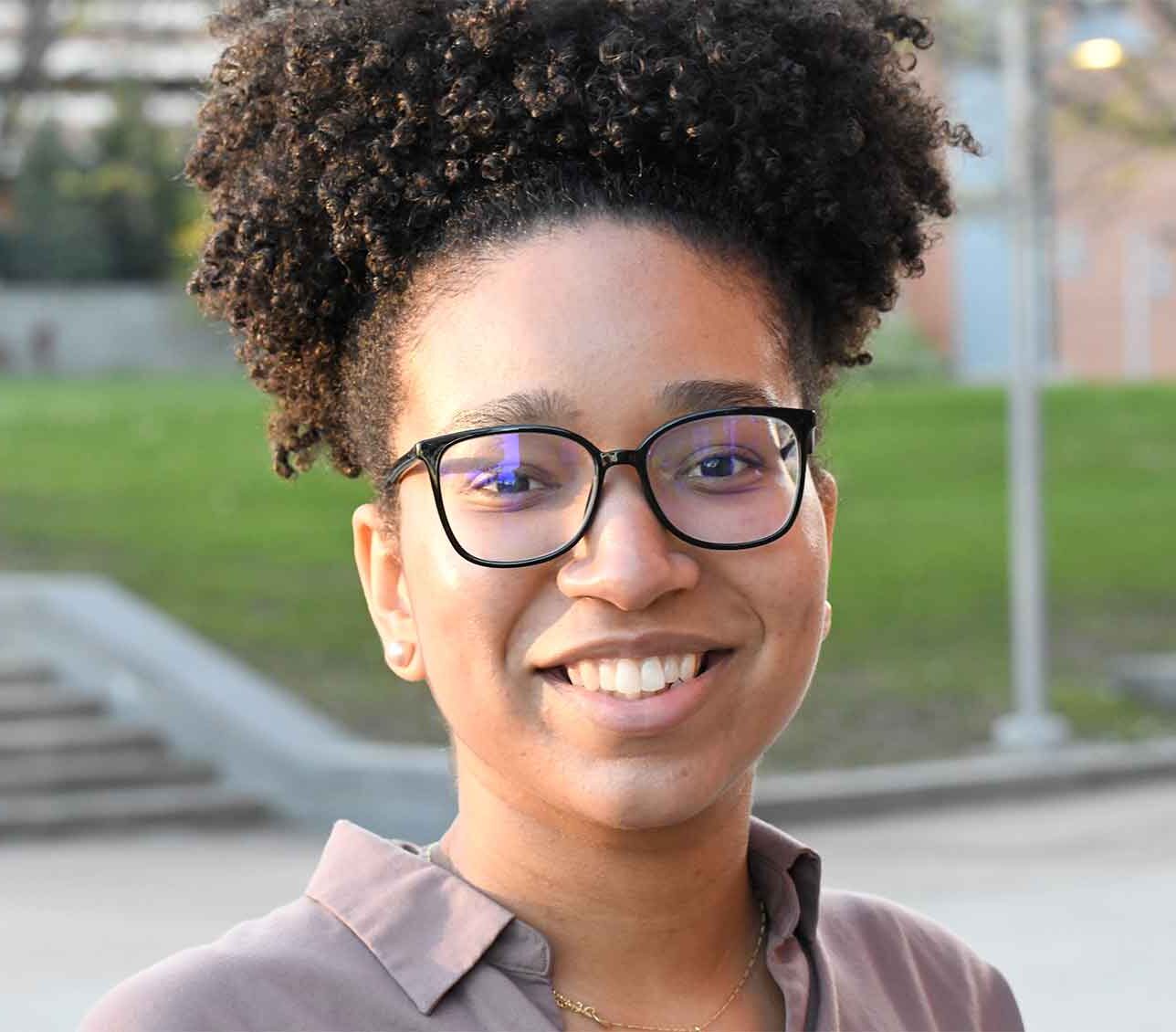
View Current Semester Courses>>
Start your education at Quincy College this fall. Our online and blended curriculum makes it easy for you to stay safe and earn your degree!
You might also be interested in...
-
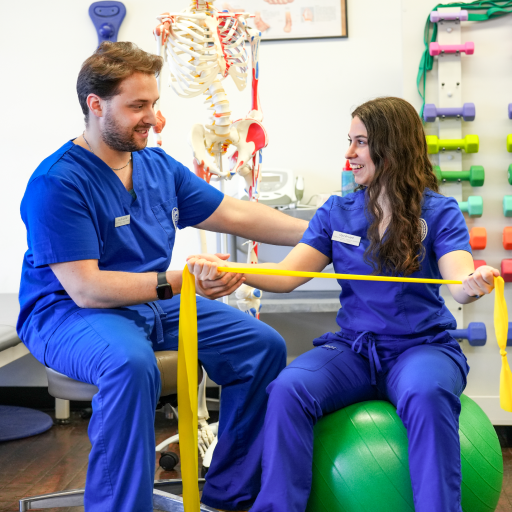
Physical Therapist Assistant
The Physical Therapist Assistant Program at Quincy College prepares students for licensure and employment as Physical Therapist Assistants.
-
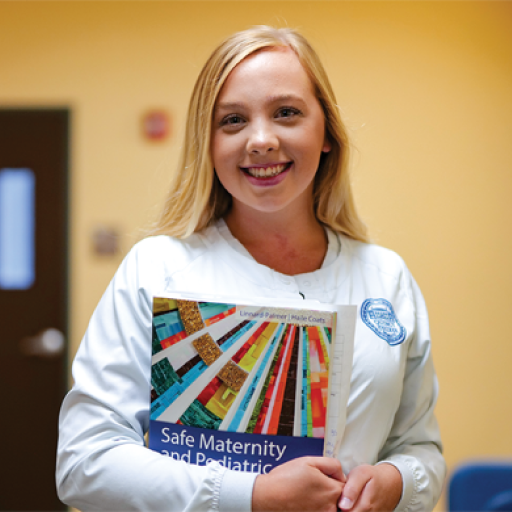
Courses
View the current course schedule. Quincy College offers the programs you want, the flexibility you need and the price that makes it all possible.
-

Health & Fitness Center
Quincy College Health & Fitness Center provides fitness programs and research studies for adults within the South Shore area.
-
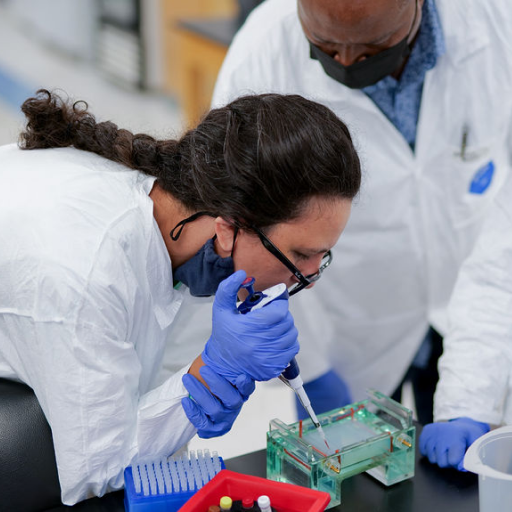
Medical Laboratory Technician
The MLT program consists of didactic and campus laboratory courses designed to progress the student through a two-year program.
